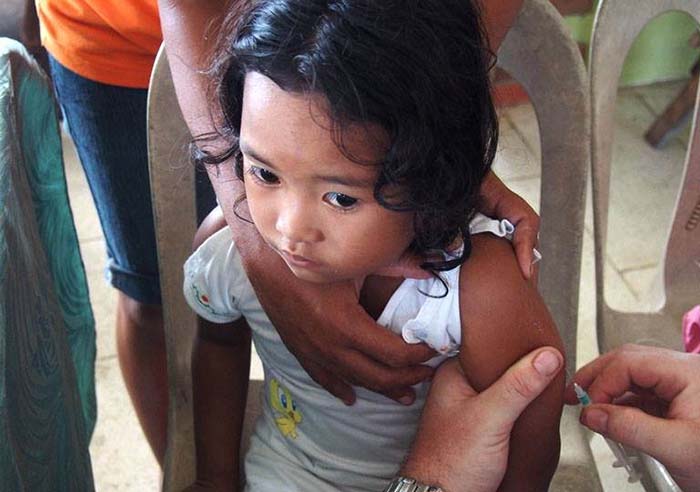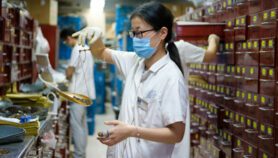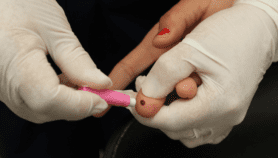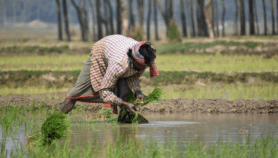31/01/18
Dengue vaccination: when being the first is a bad idea

By: Crispin Maslog
Send to a friend
The details you provide on this page will not be used to send unsolicited email, and will not be sold to a 3rd party. See privacy policy.
As Philippine scientists and politicians fight over the failure of Asia’s first mass dengue vaccination programme, the biggest casualty may be people’s trust and confidence in vaccination and other government-led public health programmes as effective ways to fight diseases.
When the Philippines launched the dengue vaccination programme on 4 April 2016 using Sanofi Pasteur’s Dengvaxia, it was with great fanfare and optimism.
Today, the Philippine Senate is investigating the halted programme while lawyers representing dengue victims are threatening a class action suit against Sanofi Pasteur and government officials involved in the programme.
“As media provides sensational coverage of suspected dengue vaccine-related child death, public trust in vaccination has taken a beating”
Crispin Maslog
As media provides sensational coverage of suspected dengue vaccine-related child deaths, public trust in vaccination has taken a beating. Unfortunately, the mistrust has extended to other public health programs as families in poor communities now refuse to take part in free child basic care programs such as deworming, as seen in the news.
The furore began on 29 November 2017 when Sanofi Pasteur warned in a statement that people inoculated with the dengue vaccine would be at “severe risk” if they had not been previously infected with the virus. Dengvaxia, according to the manufacturer, gives “persistent protective benefit against dengue”, but only for those who have been previously infected with the disease. Almost immediately after the news came out, a number of parents came forward claiming that their children either got sick or died as a result of the vaccination.
Scientific facts and issues
Let us review the facts briefly.
(1) Dengue is highly endemic in the Philippines, with an average of 200,000 cases each year.
On 22 December 2015, the Philippines became the first Asian country (and second in the world next to Mexico) to license Sanofi Pasteur’s vaccine, Dengvaxia.
On 4 April 2016, just four months later, the Philippines launched its school-based mass vaccination programme. It went ahead with its vaccination programme without the usually required WHO pre-qualification. However, this decision was presumably based on the advice of the Strategic Advisory Group of Experts (SAGE), a 15-member panel of independent experts, which provides recommendations to the WHO on global vaccine policies.
On 24 April 2016 or 20 days later, a total of 204,397 vaccinations were completed, 362 of which had adverse reactions. By the following year, a total of 837,000 people, mostly children, have been vaccinated, all of whom come from regions where dengue is endemic.
But on 29 November 2017, the vaccine’s producer, Sanofi Pasteur, issued a statement warning that people who got vaccinated with Dengvaxia would be at “severe risk” if they had not been previously infected with the virus. The warning was based on a new analysis of six years-worth of data from clinical studies done by the company.
(2) Immediately after that, the Philippine health secretary Francisco Duque said in a press conference that the dengue vaccination programme was halted and a review was ordered. He tells SciDev.Net in an interview that there are no plans to resume the mass vaccination programme. (3) The health department is also looking at 24 deaths possibly linked to the mass vaccination, adds Duque.
Political fallout
The media has kept the Dengvaxia issue in the headlines ever since Sanofi Pasteur made its announcement. Broadcast and social media have sensationalised the story, airing pictures of mothers crying over the deaths of children attributed to dengue.
The general public is especially critical of Sanofi Pasteur and former health officials, often voicing negative opinions about vaccination itself on various social media platforms.
The Philippine Senate, through its investigative and anti-corruption Blue Ribbon Committee, has conducted several hearings on the scandal, with no less than former Philippine President Benigno Aquino III among those who have testified and stand to face charges.
Lessons learned
What have we learned from this fiasco?
First, we are reminded again that haste makes waste. I confess to being gung-ho when I wrote about the launch of the vaccination programme in 2016. It seemed a bold and pioneering move, considering the number of cases in the Philippines.
The Philippine government could have been more conservative in adopting the new vaccine, especially in this case, since it involves children. And why start on such a massive scale? Testing the vaccine on a smaller sample size as an extension of the clinical trials while Sanofi Pasteur completed its own tests would have been ideal.
The public is now wary of other health programs. The scepticism could extend to scientists who will be talking of new technologies that could affect health like gene foods. Today (January 31) a group of leading Filipino physicians and scientists published a statement in leading newspapers expressing concern on the misinformation generated by the Dengvaxia controversy that “has eroded public confidence in the country’s vaccination programs and other public healthcare endeavours”.
“If this trend continues then we may find ourselves faced with outbreaks of debilitating and life-threatening diseases that we have already been able to control through our vaccination programs”, the statement emphasised.
Indeed, the Philippines has the distinction of being the first country in the world to introduce Dengvaxia in a mass vaccination programme — but it is now paying the price for this. It is inescapable that Filipino children had been made into guinea pigs in the development of a new dengue vaccine, with the scientific and health community’s reputation taking a hit as well.
Crispin Maslog, a former journalist with Agence France-Presse, is an environmental activist and former science professor at Silliman University and University of the Philippines Los Baños. He is a founding member and now Chair of the Board of the Asian Media Information and Communication Centre.
This piece was produced by SciDev.Net’s Asia & Pacific desk.
References
1. Asia-Pacific Analysis: Philippines’ bet on dengue vaccine, SciDev.Net, May 9, 2016
2. Asia-Pacific Analysis: Philippines stops risky dengue shots from Sanofi, SciDev.Net, December 12, 2017
3. Secretary Francisco Duque, Interview with SciDev.Net, 27 January 2018.













